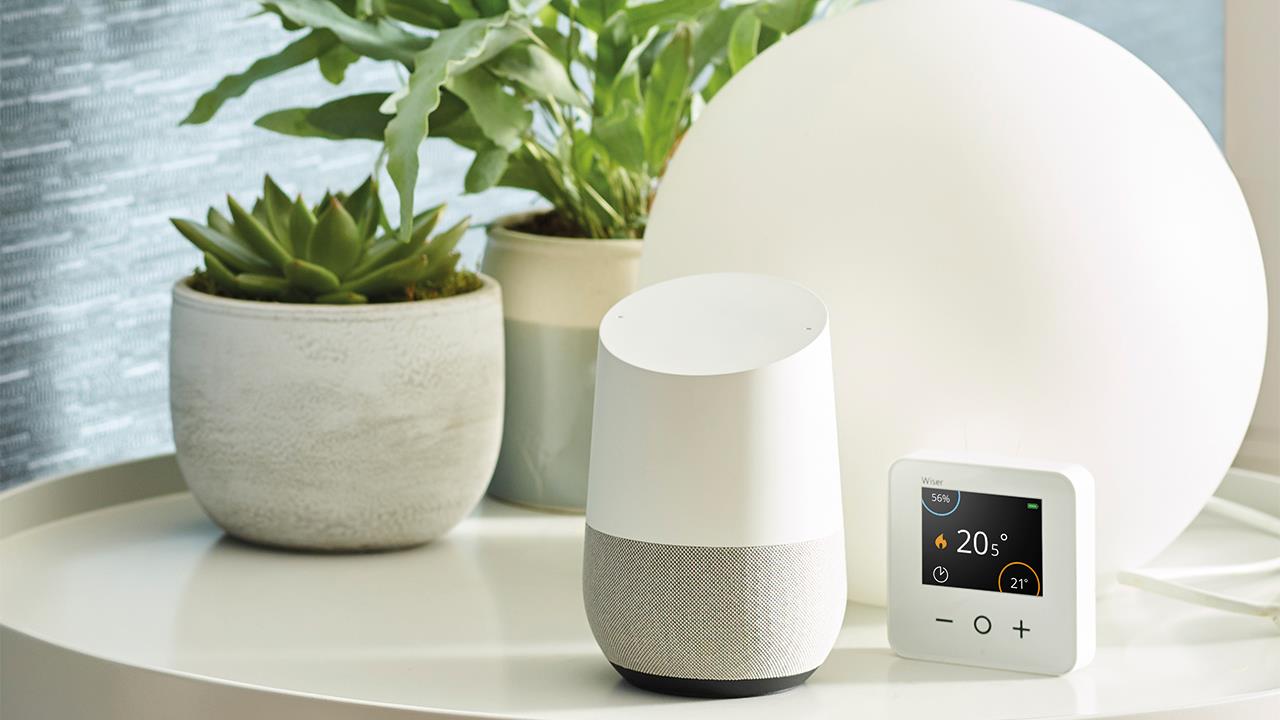

Jamie Bennett, Engineering Director at Drayton, discusses how the industry is shifting towards the concept of ‘home energy management’ and why installers need to be aware of it.
Over the next few years, it is expected that electric heating methods will become more widely adopted both in newbuilds and existing homes.
As demand for electricity increases, the industry is now building on smart heating and homeowners are starting to embrace more connected devices in the home. This is ultimately leading the way when it comes to the concept of ‘home energy management’, which is expected to grow by 31% every year over the next five years in the UK, according to a Delta-EE report.
What is home energy management?
The concept of home energy management is part of the broader smart home space and the ever-expanding Internet of Things. Home Energy Management Systems (HEMS) enable households to better manage energy consumption by providing information about energy usage and/or allowing more precise control of the so-called ‘energy guzzlers’ in the home, like EV chargers and heating devices.
HEMS are comprised of two main components; hardware and software. The system’s hardware generally consists of a ‘hub’ device that acts as a link between the homeowner and the devices and appliances connected in the home, while the software usually refers to a smartphone app or web portal that homeowners use to monitor and control energy consumption of all connected devices.
What heat sources?
Currently, there are three key energy sources HEMS can be integrated with to give homeowners full sight of the energy being consumed and generated by the household.
Electricity
A core function of HEMS involves monitoring the use of electricity within the home, which will be crucial as electric alternatives, such as heat pumps, become more widely adopted.
HEMS give homeowners the ability to quickly and simply monitor which devices are operating and remotely modify their operation (i.e. turning down the temperature of the heating system).
Additionally, HEMS with energy storage capabilities can also be very effective in a power outage situation, helping to distribute energy to the applications that matter the most when required.
Solar
Solar panels are popular in the UK, allowing homeowners to generate a portion of their electricity on-site. HEMS can ensure this energy is used effectively as possible, giving homeowners the option to programme their system to run certain applications when the sun is shining or to export unused energy to the grid for financial benefits.
HEMS can also help improve their value even further by supplementing solar energy with electrical heating when tariffs are low and outside conditions are not optimal.
Battery storage
Thanks to the growth of renewable energy and advancements in technology, energy storage is now an area that offers homeowners a lot of potential. Energy storage works well with the idea of the ‘smart home’ and is key to greater home energy self-sufficiency and lower electricity bills. If homeowners utilise a renewable energy system, such as solar PV, then they will inevitably generate more electricity than needed at times of high supply and low demand.
In order to maximise the value of battery storage, HEMS can take into account multiple variables – such as whether homeowners are on a time of use flat rate tariff and whether they have any incentive to sell stored energy to the grid.
One of the main benefits offered by HEMS is the enhanced performance and optimisation of connected devices, which is going to be needed as we move towards electric heating methods if we want them to deliver the same level of comfort and costs as the gas boilers the majority of the population are familiar with.
Different HEMS will allow different monitoring capabilities, but generally homeowners will not only receive feedback on how their energy is being used or generated (by renewable energy sources), but also information on past and present use to view trends. By using a homeowner’s preferences, the system will automatically optimise the home for maximum savings while maintaining comfort and convenience.
While this type of fully automated home might be some way off, it’s clear these innovative systems have a big role to play in the future of the energy infrastructure. With this in mind, it’s important that heating engineers are educating themselves as early as possible on the home energy management solutions available to be in a position to upskill and adopt them as part of their offering in the near future
If you'd like to keep up-to-date with the latest developments in the heating and plumbing industry, why not subscribe to our weekly newsletters? Just click the button below and you can ensure all the latest industry news and new product information lands in your inbox every week.